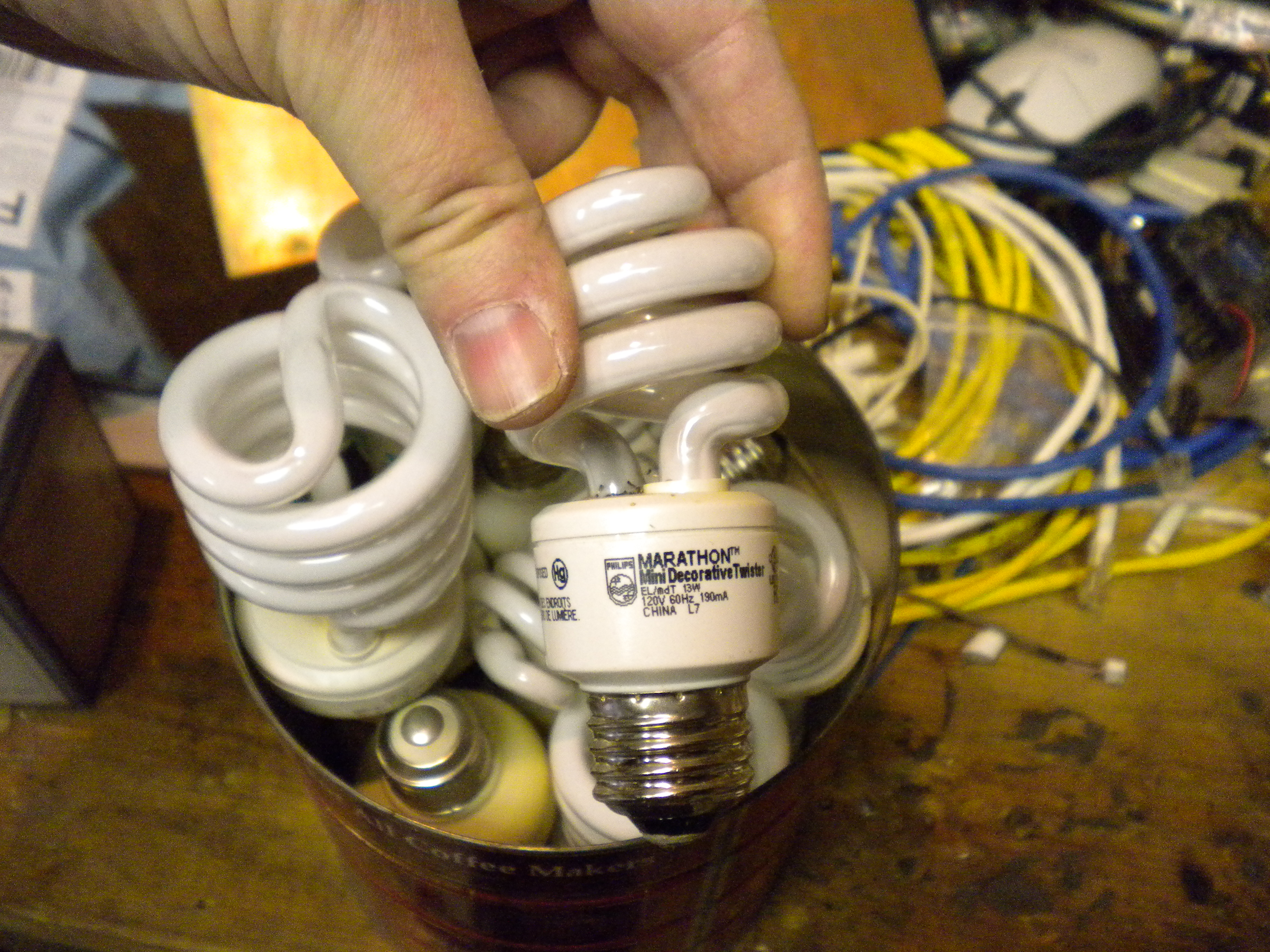As the year 2012 opened, consumers and businesses were faced with a Federal mandate outlawing the sale of incandescent light bulbs on the pretense that they are inefficient electrically and economically. As a nation we were commanded, over our protests, that we are forced to buy folded fluorescent “CFL” bulbs, because even though they cost more to purchase, cost more to manufacture, and cost more environmentally due to the dangerous mercury in them and because there is no practical way consumers can recycle them, that these “efficient” CFL bulbs will last 11 years and use less electricity.
Now that a year has almost passed, we can evaluate and see that the facts are different than the promise. I found incandescent bulbs to last in my home many months or possibly a few years. The photos below are of CFL bulbs installed February through April 2012, and died by September 2012 — five to seven months life for the bulb.
I do not advocate going backwards to higher electricity use in our light bulbs, but I do advocate demanding bulb manufacturers make their bulbs well enough that they live up to the promise: they must work anywhere incandescent bulbs work, deliver as much light in the same of more complete spectrum than incandescent bulbs using less electricity, and last a minimum of 11 years before requiring replacement. There must also be a recycling process in place and a clear penalty for manufactures who do not live up to this standard as well as an incentive for consumers to recycle the bulbs. One approach, since no bulbs should need to be recycled for 10 more years, is to add a paragraph to the legislation to achieve the following:
- All retail stores which sell light bulbs shall accept bulbs for recycling, and shall accept defective bulbs — those which last less than 11 years from date of sale
- If a consumer brings in a defective bulb, retailer shall give consumer another new or rebuilt bulb of the same luminosity and physical arrangement and shall immediately pay the consumer one dollar ($1.00) cash for each failed bulb to compensate consumer for expenses in returning the bulb. “Store credit” or other non-liquid payment means may not be used without the consumer’s expressed consent.
- All retail stores which have received bulbs for recycling or because they are defective (did not last the promised 11 years), retailer shall ship said bulbs to the manufacturer, or US agent for said manufacturer.
- If a retailer ships defective bulbs to manufacturer (or agent) manufacturer shall pay all of retailer’s reasonable expenses of shipping and handling to retailer plus two dollars ($2.00) to compensate retailer for money paid to consumer and to compensate retailer for expenses of accepting the bulbs from the consumer, and return ship at manufacturer’s expense, new or rebuilt replacement bulbs to replace the defective bulbs. Payment shall be sent to retailer no more than 5 business days from the date defective bulbs arrived at manufacturer’s location
- Neither retailer nor manufacturer is required to accept bulbs with a broken glass envelope.



